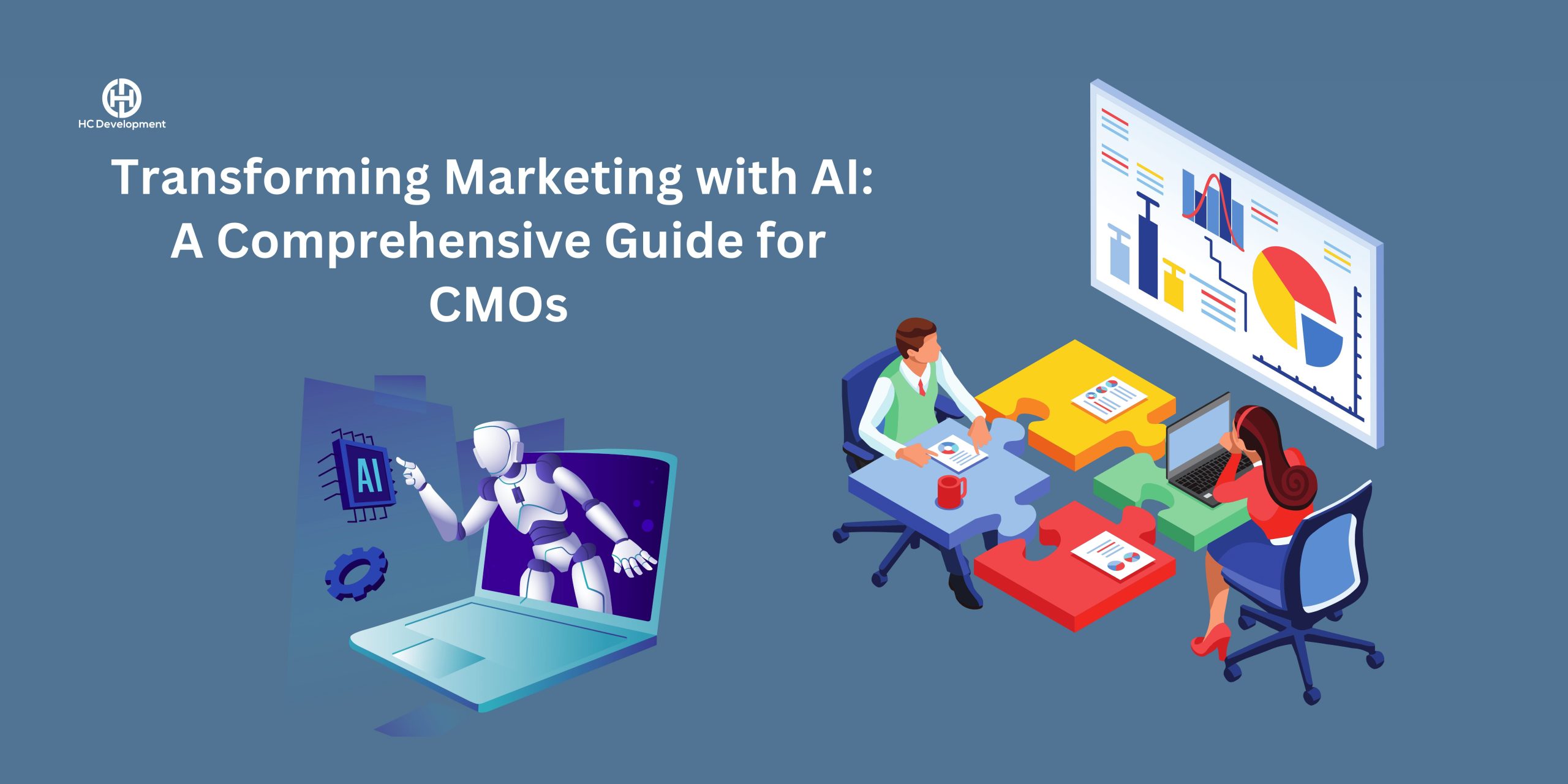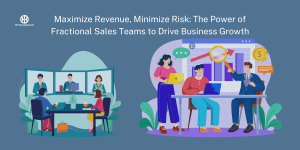Transforming Marketing with AI: A Comprehensive Guide for CMOs
Artificial intelligence (AI) is revolutionizing the marketing landscape. For Chief Marketing Officers (CMOs), leveraging AI in marketing offers the potential to enhance customer experiences, optimize campaigns, and drive significant growth. This blog post provides a comprehensive roadmap for CMOs to implement AI in their marketing strategies effectively.
Understanding AI in Marketing
Artificial intelligence in marketing refers to the use of machine learning algorithms and other AI technologies to analyze data, automate processes, and deliver personalized experiences to customers. It involves a range of applications, from predictive analytics to customer segmentation and content personalization.
The Importance of AI in Modern Marketing
Enhanced Customer Experience
AI enables CMOs to deliver more personalized and relevant experiences to customers. By analyzing customer data, AI can predict preferences and behaviors, allowing for tailored marketing messages that resonate with individual needs.
Improved Efficiency and Productivity
AI can automate repetitive and time-consuming tasks, such as data entry, email marketing, and social media management. This automation frees up time for marketing teams to focus on more strategic activities, improving overall productivity.
Data-Driven Decision Making
With AI, CMOs can make more informed decisions based on data rather than intuition. AI-powered analytics provide valuable insights into customer behavior, campaign performance, and market trends, enabling CMOs to optimize their strategies for better results.
Key Applications of Artificial intelligence in Marketing
Predictive Analytics
Predictive analytics uses AI to analyze historical data and predict future outcomes. CMOs can use predictive analytics to anticipate customer needs, forecast sales, and optimize marketing campaigns for maximum impact.
Customer Segmentation
AI can analyze large datasets to identify distinct customer segments based on behaviors, preferences, and demographics. This segmentation allows CMOs to target specific groups with tailored marketing messages, improving engagement and conversion rates.
Content Personalization
AI-powered tools can deliver personalized content to customers based on their preferences and behaviors. This personalization ensures that customers receive relevant and engaging content, enhancing their overall experience with the brand.
Chatbots and Virtual Assistants
AI-powered chatbots and virtual assistants can provide instant customer support and assistance. These tools can handle common queries, offer product recommendations, and guide customers through the sales process, improving customer satisfaction and reducing response times.
Marketing Automation
AI can automate various marketing tasks, from email campaigns to social media scheduling. Marketing automation tools can analyze customer interactions and trigger personalized messages at the right time, ensuring consistent and timely communication with customers.
Steps for Implementing AI in Marketing
1. Define Clear Objectives
Before implementing AI, CMOs should define clear objectives for what they hope to achieve. This could include improving customer engagement, increasing sales, or optimizing marketing spend. Clear objectives will guide the selection and implementation of AI technologies.
2. Assess Current Capabilities
CMOs should assess their current marketing capabilities and identify gaps that AI can fill. This assessment will help determine the specific AI tools and technologies needed to achieve their objectives.
3. Choose the Right AI Tools
There are numerous AI tools available for marketing, each with different capabilities and features. CMOs should choose tools that align with their objectives and integrate seamlessly with their existing marketing infrastructure.
4. Invest in Data Management
AI relies heavily on data to function effectively. CMOs should invest in robust data management practices to ensure they have access to high-quality, accurate data. This includes implementing data collection, storage, and analysis processes.
5. Train Marketing Teams
Implementing AI requires a skilled team that understands how to use AI tools effectively. CMOs should invest in training and development programs to equip their marketing teams with the necessary skills and knowledge.
6. Monitor and Optimize
Once AI is implemented, CMOs should continuously monitor its performance and optimize their strategies accordingly. This involves analyzing data, tracking key metrics, and making adjustments to improve outcomes.
Overcoming Challenges in AI Implementation
Data Privacy and Security
One of the main challenges in implementing Artificial intelligence is ensuring data privacy and security. CMOs must comply with data protection regulations and implement robust security measures to protect customer data.
Integration with Existing Systems
Integrating AI tools with existing marketing systems can be complex. CMOs should work closely with IT teams to ensure seamless integration and avoid disruptions to marketing operations.
Cost and Resource Allocation
Implementing AI can be costly, requiring significant investment in technology and resources. CMOs should carefully allocate their budgets and resources to ensure they achieve a positive return on investment.
Change Management
Implementing Artificial intelligence often requires changes to existing processes and workflows. CMOs should manage this change effectively by communicating the benefits of AI and providing support to marketing teams throughout the transition.
The Future of AI in Marketing
Advanced Personalization
As AI technology continues to evolve, the level of personalization in marketing will become even more advanced. CMOs will be able to deliver hyper-personalized experiences that cater to individual customer preferences in real-time.
Enhanced Customer Insights
AI will provide even deeper insights into customer behavior and preferences, allowing CMOs to understand their customers better and tailor their strategies accordingly.
Greater Automation
The scope of marketing automation will expand, with Artificial intelligence handling increasingly complex tasks. This will further improve efficiency and allow marketing teams to focus on strategic activities.
Integration with Other Technologies
AI will increasingly integrate with other emerging technologies, such as augmented reality and the Internet of Things (IoT), to create innovative and immersive marketing experiences.
Conclusion
Leveraging AI in marketing offers immense potential for CMOs to enhance customer experiences, improve efficiency, and drive growth. By following a structured roadmap for implementation, CMOs can successfully integrate AI into their marketing strategies and stay ahead of the competition. As AI technology continues to evolve, the future of marketing looks promising, with new opportunities for innovation and success.
To know more about Business Growth and Strategy Click Here
Subscribe : Youtube




